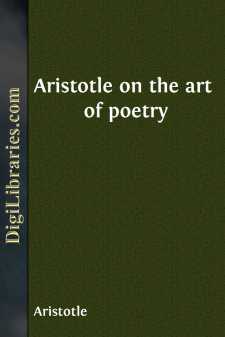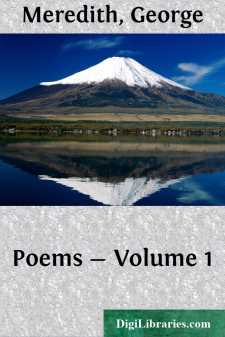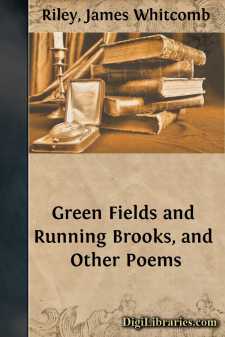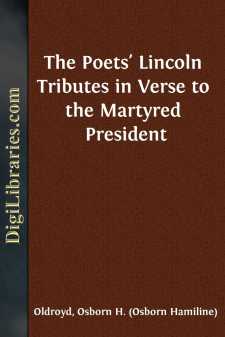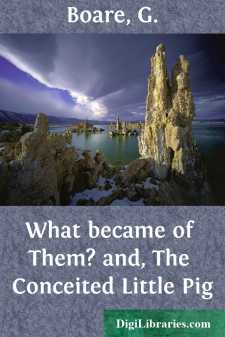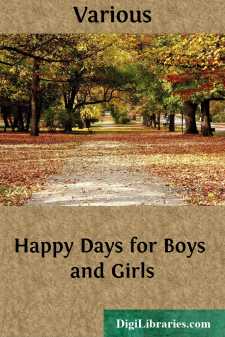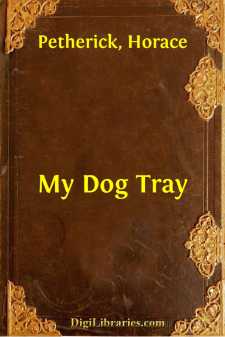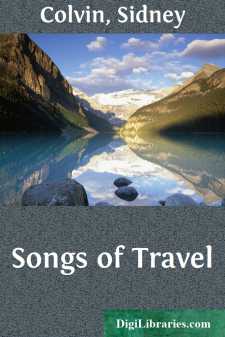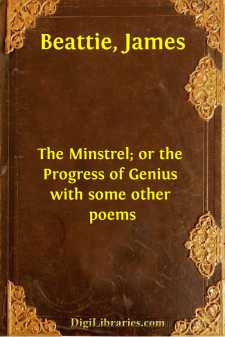Poetry
General Books
Sort by:
by:
Aristotle
In the tenth book of the Republic, when Plato has completed his final burning denunciation of Poetry, the false Siren, the imitator of things which themselves are shadows, the ally of all that is low and weak in the soul against that which is high and strong, who makes us feed the things we ought to starve and serve the things we ought to rule, he ends with a touch of compunction: 'We will give...
more...
by:
George Meredith
XXXIV O, take to your fancy a sculptor whose fresh marble offspringappearsBefore him, shiningly perfect, the laurel-crown'd issue of years:Is heaven offended? for lightning behold from its bosom escape,And those are mocking fragments that made the harmonious shape!He cannot love the ruins, till, feeling that ruins aloneAre left, he loves them threefold. So passed the old grandfather'smoan....
more...
GREEN FIELDS AND RUNNING BROOKS Ho! green fields and running brooks! Knotted strings and fishing-hooks Of the truant, stealing down Weedy backways of the town. Where the sunshine overlooks, By green fields and running brooks, All intruding guests of chance With a golden tolerance, Cooing doves, or pensive pair Of picnickers, straying there— By green fields and...
more...
Some years ago, while editing Henry C. Whitney's "Life of Lincoln" I showed a photograph of the bust of Lincoln by Johannes Gelert, the most intellectual to my mind of all the studies of his face, to a little Italian shoeblack, and asked him if he knew who it was. The boy, evidently prompted by a recent lesson at school, said questioningly, "Whittier?—Longfellow?" I replied,...
more...
by:
Anonymous
LITTLE ALLIE. I have been to see my little cousin Alice. She is just three years old, and I love her dearly. She has many things to play with. She has a ball, a rattle, and a horse; and she had a nice wax doll given her last Christmas, but as she got the paint off its face by kissing, it is laid by till she is bigger. We played she was my baby, and I dressed her up and took her to walk; after that we...
more...
by:
G. Boare
e was a rat, and she was a rat,And down in one hole they did dwell,And both were as black as a witch’s cat,And they loved one another well.He had a tail, and she had a tail,Both long and curling and fine,And each said “Yours is the finest tailIn the world,—excepting mine!” e smelt the cheese, and she smelt the cheese,And they both pronounced it good,And both remarked it would greatly addTo the...
more...
by:
Various
THE ORCHARD’S GRANDMOTHER. I MUST ask you to go back more than two hundred years, and watch two people in a quiet old English garden. One is an old lady reading. In her young days she was a famous beauty. That was very long ago, to be sure; but I think she is a beauty still—do not you? She has such a lovely face, and her eyes are so sweet and bright! and better than that, they are the kind which...
more...
by:
Horace Petherick
MY DOG TRAY.Twice every week a poor, thin man,Holding his little daughter’s hand,Walked feebly to a hospital,Close by the busy London Strand.He hoped the clever doctors thereIn time would make him strong and well,That he might go to work again,And live to care for little Nell.Beside wee Nell, her faithful friend,Good old dog Tray was always seen,Never a day apart the pairSince Nelly’s babyhood had...
more...
by:
Sidney Colvin
I—THE VAGABOND(To an air of Schubert) Give to me the life I love, Let the lave go by me,Give the jolly heaven above And the byway nigh me.Bed in the bush with stars to see, Bread I dip in the river—There’s the life for a man like me, There’s the life for ever. Let the blow fall soon or late, Let what will be o’er me;Give the face of earth around And the road before...
more...
by:
James Beattie
BOOK FIRST. I.h! who can tell how hard it is to climbThe steep, where Fame’s proud temple shines afar!Ah! who can tell how many a soul sublimeHas felt the influence of malignant star,And waged with Fortune an eternal war!Checked by the scoff of Pride, by Envy’s frown,And Poverty’s unconquerable bar,In life’s low vale remote has pined alone,Then dropt into the grave, unpitied and unknown! II.And...
more...


